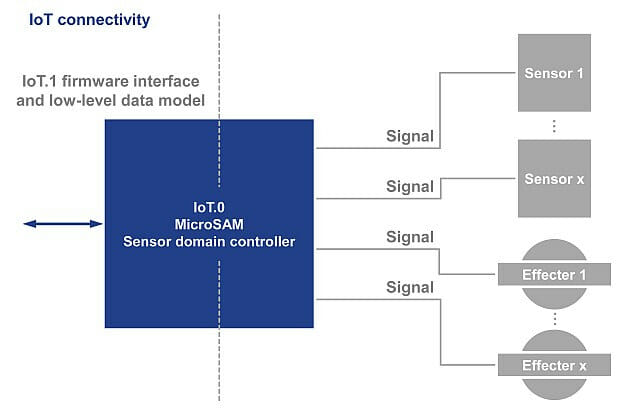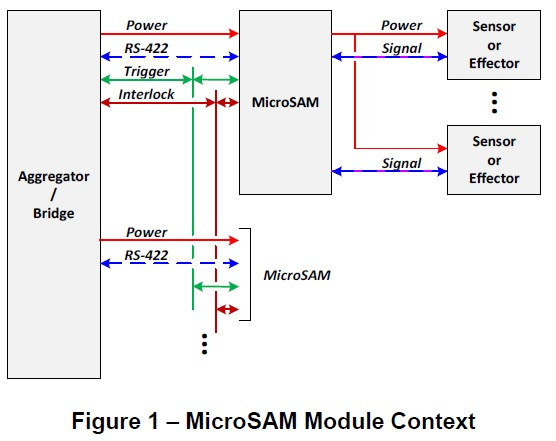The PICMG consortium is better known for COM Express and COM HPC standards for x86 industrial computers-on-module, but last year they started catering to the IIoT sector with the introduction of the microSAM System-on-Module (micro Sensor Adapter Modules) standard for microcontrollers and IIoT sensors. The consortium has now ratified the IoT.1 firmware specification defining a communication standard between sensors/effecters and local IoT controllers such as microSAM specified by PICMGs IoT.0 specification. The PICMG IoT.1 standard, developed in collaboration with the Distributed Management Task Force (DMTF), defines a vendor-agnostic firmware interface and low-level data model that builds upon the Platform Level Data Model (PLDM) low-level messaging system, and adds features specific to industrial automation and control use cases. If like me, you’ve never heard about PLDM, PICMG explains: The PLDM is a low-level messaging system that supports topologies, eventing and discovery and runs over a variety of system level buses such […]
MicroSAM System-on-Module Standard Targets Microcontrollers, IIoT Sensors
There are plenty of system-on-module standards, but those mostly target application processors such as Intel/AMD x86 processors or Arm Cortex-A based SoCs. PICMG has now added a new IIoT-related open standard with MicroSAM specifying a 32x32mm module for microcontrollers and industrial IoT sensor nodes. MicroSAM standard highlights: Reliable RS422 industrial-grade communications PWM output for motion control applications Direct connectivity to a variety of sensor types (analog voltage, analog current, digital) Low power consumption Power filtering and signal conditioning for embedded installations Dimensions – 32mm x 32mm Latching connectors for secure connectivity Full industrial operating temperature range from -40°C to +85°C One of the advantages often cited for traditional SoMs is that customers don’t have to take care of the complex layout around the processor and RAM, and can simply create a 2-layer baseboard to insert the 6-layer SoM into it. This lowers the development costs and time-to-market. But it’s not […]




